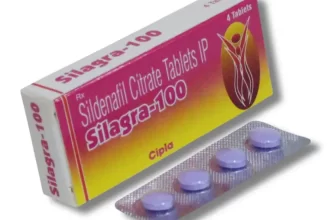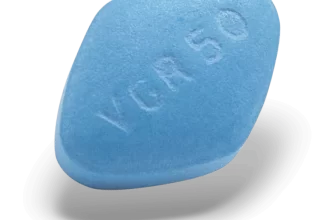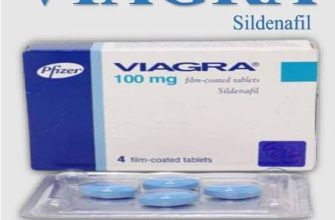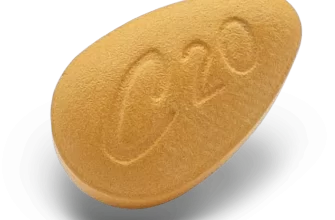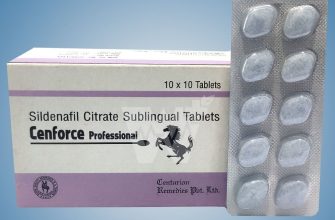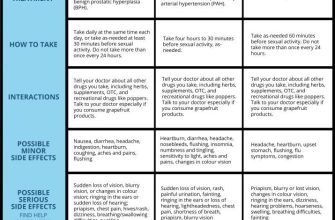Consider exploring generic drug options to significantly reduce your healthcare costs. A recent study by the AARP showed that generic drugs can be 80-90% cheaper than their brand-name counterparts, offering substantial savings without compromising efficacy.
Focus on understanding the FDA approval process. Generic drugs undergo rigorous testing to ensure they meet the same quality, safety, and effectiveness standards as brand-name medications. The FDA requires bioequivalence, meaning the generic drug performs the same way in the body as the brand-name drug.
Always consult your doctor before switching to a generic medication. They can help you identify suitable generic alternatives and address any potential concerns or interactions with other medications you may be taking. Your pharmacist is also a valuable resource for information about generic drug availability and pricing.
Compare prices across different pharmacies. Costs can vary substantially, even for the same generic drug. Online pharmacy comparison tools or price-checking apps can help you quickly find the best deals in your area. Consider using a prescription discount card or joining a pharmacy’s loyalty program for additional savings.
- Cheap Generic Drugs: A Comprehensive Guide
- Understanding Generic Drug Approval and Regulation
- Finding Reputable Online and Offline Sources for Generic Drugs
- Online Pharmacies: Due Diligence is Key
- Offline Pharmacies: Local Options
- Important Considerations
- Never Compromise Safety
- Comparing Prices and Ensuring Drug Efficacy: A Practical Guide
- Potential Risks and Side Effects of Generic Drugs: What You Need to Know
- Understanding Allergic Reactions
- Managing Common Side Effects
- Efficacy Concerns
- Transparency and Information
- Saving Money Safely: Tips for Purchasing and Using Generic Medications
Cheap Generic Drugs: A Comprehensive Guide
Start by understanding that generic drugs contain the same active ingredients as brand-name medications. This means they offer identical therapeutic effects at a significantly lower cost.
Here’s what you need to know:
- FDA Approval: Generic drugs undergo rigorous FDA testing to ensure they meet the same high standards as their brand-name counterparts. Look for the FDA approval symbol.
- Cost Savings: Generics can cost 80-90% less than brand-name medications, making them an affordable treatment option. This difference can be substantial over time, especially for chronic conditions.
- Bioequivalence: This is a key concept. Bioequivalence means the generic drug delivers the same amount of active ingredient to your bloodstream as the brand-name drug. This guarantees similar efficacy.
To find affordable generics:
- Check with your doctor: Discuss your medication needs and explore available generic options. Your doctor can help you find a safe and effective generic alternative.
- Use a prescription discount card: Many pharmacies and online services offer discount cards that can further reduce the cost of both brand-name and generic medications.
- Compare prices at different pharmacies: Drug prices can vary significantly between pharmacies. Shop around to find the best deal on your prescription.
- Consider mail-order pharmacies: Mail-order pharmacies often offer lower prices on prescription medications, including generics. They can be particularly cost-effective for long-term treatments.
Remember to always consult your physician before switching medications. They can advise you on appropriate dosages and potential interactions.
Safe and affordable healthcare is achievable with generic drugs. Use this guide to access the medicine you need without breaking the bank.
Understanding Generic Drug Approval and Regulation
Generic drug approval hinges on demonstrating bioequivalence to the brand-name drug. This means the generic drug must have the same active ingredient, dosage form, strength, route of administration, and quality as the original drug, resulting in comparable blood levels.
The FDA (Food and Drug Administration) in the US, and equivalent regulatory bodies globally, rigorously assess these factors. They review extensive data, including preclinical and clinical studies, manufacturing processes, and quality control procedures, before granting approval. This process aims to ensure patient safety and efficacy, maintaining the same therapeutic benefit as the brand-name equivalent.
Data submitted for generic drug approval often includes pharmacokinetic and pharmacodynamic studies which compare the generic drug’s absorption, distribution, metabolism, and excretion to the brand-name drug. These studies are pivotal to demonstrating bioequivalence.
Manufacturing facilities undergo rigorous inspections to ensure adherence to Good Manufacturing Practices (GMP). These GMP guidelines are internationally recognized standards that guarantee consistent product quality, safety and efficacy. Non-compliance with GMP can delay or even prevent approval.
| Regulatory Body | Country/Region |
|---|---|
| FDA | United States |
| EMA | European Union |
| PMDA | Japan |
| TGA | Australia |
Post-market surveillance continues even after approval. Regulatory agencies monitor the performance and safety of generic drugs through various reporting mechanisms and ongoing analysis. This system allows for timely detection and resolution of any safety concerns.
Therefore, generic drug approval is a thorough and demanding process, ensuring comparable quality and safety to their brand-name counterparts. This rigorous evaluation benefits patients by providing affordable access to effective medications.
Finding Reputable Online and Offline Sources for Generic Drugs
Start with your doctor. They can provide prescriptions for generics and offer guidance on safe pharmacies.
Check your insurance plan. Many insurance companies maintain lists of preferred pharmacies offering discounted generic medications. This often includes both online and brick-and-mortar locations.
Online Pharmacies: Due Diligence is Key
Verify licensing and accreditation. Look for pharmacies registered with the relevant authorities in your country (e.g., the NABP in the US, the GPhC in the UK). Check for independent verification seals from reputable organizations. Avoid sites with vague or missing contact information.
Read reviews carefully. Pay close attention to customer experiences regarding shipping times, order accuracy, and customer service responsiveness. Independent review sites can be helpful, but be aware of potential bias.
Offline Pharmacies: Local Options
Visit local pharmacies. Many local pharmacies offer competitive pricing on generic medications. Ask about their generic drug inventory and any available discounts or programs. Comparison shopping across different local pharmacies can save you money.
Consider using a pharmacy discount card. These cards, available from various sources, can provide additional savings on prescription drugs, including generics. These are often offered by retail stores, seniors’ organizations or pharmacy benefit management companies.
Important Considerations
Always verify the medication. Compare the pill’s appearance (shape, color, markings) to the image on the prescription packaging. Contact the pharmacy immediately if something appears amiss.
Beware of suspiciously cheap prices. Prices far below average may indicate counterfeit or substandard drugs. Prioritize reputable sources over unbelievably low prices.
Never Compromise Safety
Prioritize your health. Purchasing medication from untrusted sources can have serious health consequences. Stick to your doctor’s advice and utilize reliable pharmacies.
Comparing Prices and Ensuring Drug Efficacy: A Practical Guide
Check multiple online pharmacies and local drugstores. Websites like GoodRx can help compare prices. Note that prices fluctuate; monitor them over a week or two.
Verify the drug’s authenticity. Look for FDA approval (in the US) or equivalent certifications in your country. Cross-reference the manufacturer’s details with official databases. Beware of unusually low prices; they might indicate counterfeit medications.
Read reviews. Examine patient feedback on reputable platforms regarding specific generic brands, focusing on reported side effects and overall effectiveness. However, remember individual responses vary.
Consult your doctor or pharmacist. They can provide personalized guidance based on your medical history, potential drug interactions, and preferred brands. They’ll address your concerns about generic drug efficacy directly.
Understand the generic drug approval process. Generics must meet stringent quality and bioequivalence standards to ensure they contain the same active ingredient, in the same amount, as the brand-name drug. The FDA (or your country’s equivalent) oversees this rigorously.
Don’t solely prioritize price. While cost matters, ensure efficacy and safety remain your primary concerns. A slightly more expensive, reliable source is preferable to a suspiciously cheap, potentially unsafe one.
Compare ingredients. Check the inactive ingredients (excipients) listed on the label, as these can sometimes cause allergic reactions in sensitive individuals. Differences in excipients do not necessarily affect the active ingredient’s effectiveness but might influence tolerability.
Potential Risks and Side Effects of Generic Drugs: What You Need to Know
Generic drugs generally have the same active ingredients as brand-name drugs, but minor differences in inactive ingredients can cause varied reactions. These differences might lead to slight variations in how quickly the drug is absorbed or how long its effects last. For instance, a generic version might result in slightly different peak plasma concentrations compared to the brand-name counterpart.
Understanding Allergic Reactions
While rare, allergic reactions to inactive ingredients are possible. Pay close attention to your body’s response after starting a new generic medication. Symptoms such as rash, hives, swelling, or difficulty breathing warrant immediate medical attention. Keep a record of any reactions you experience to help your doctor identify potential triggers.
Managing Common Side Effects
Generic drugs can produce similar side effects as their brand-name counterparts, although the frequency or severity might differ slightly. Common side effects vary widely depending on the specific medication but often include nausea, headache, dizziness, or constipation. Discuss any concerning side effects with your doctor or pharmacist. They can offer advice on managing these symptoms or consider alternative medications.
Efficacy Concerns
The FDA rigorously tests generic drugs to ensure bioequivalence, meaning they deliver the same amount of active ingredient to your bloodstream. However, individual responses can vary. If you suspect a generic drug isn’t working as effectively as the brand-name version, consult your doctor. They may need to adjust your dosage or switch you to a different medication.
Transparency and Information
Always discuss your medication choices with your doctor or pharmacist. Understand the potential side effects and monitor your body’s response closely. Transparency about your health and medication history is crucial for safe and effective treatment. Don’t hesitate to ask questions and seek clarification on any concerns you may have.
Saving Money Safely: Tips for Purchasing and Using Generic Medications
Always check your prescription against the generic medication label to ensure you have the correct dosage and form.
- Verify the medication: Compare the generic drug’s active ingredient to your branded prescription. Make sure they match exactly.
- Consult your pharmacist: Discuss any concerns or questions you have about switching to generics. They can help clarify any doubts and address potential interactions.
- Look for reputable online pharmacies: If buying online, use only licensed pharmacies with a good reputation and secure payment methods. Check reviews and ensure they’re verified and licensed.
Storing medications correctly is vital for maintaining their effectiveness.
- Follow storage instructions: Keep medications in a cool, dry place, away from direct sunlight and excessive heat or moisture. Check the label for specific instructions.
- Dispose of expired medication properly: Never flush medications down the toilet. Check local guidelines for proper disposal methods. Many pharmacies offer drug take-back programs.
- Keep your medications in their original containers: This helps prevent accidental ingestion and ensures proper dosage.
Managing your medications responsibly saves money and prevents health issues.
- Take your medication as prescribed: Follow your doctor’s instructions precisely regarding dosage and frequency. Don’t adjust your dosage without consulting your physician.
- Inform your doctor of all medications you are taking: Including over-the-counter drugs, supplements, and herbal remedies, to avoid potential drug interactions.
- Use a pill organizer: This can help you keep track of your medication schedule and ensure you take the correct doses at the right times.
Understanding your options can help you significantly reduce your healthcare costs. Don’t hesitate to speak with your doctor or pharmacist to explore all possibilities.


